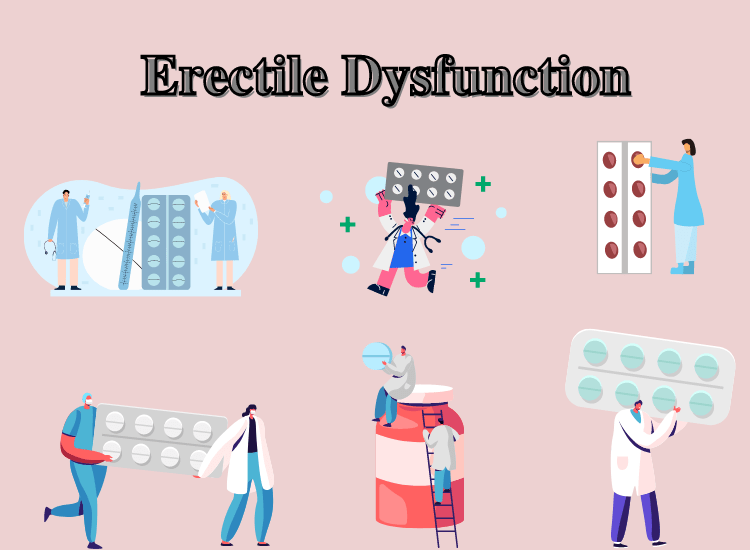tammieouttrim1
About tammieouttrim1
Observational Insights into the Treatment Of Eating Disorders: A Complete Overview
Eating disorders (ED) represent a complex group of psychological well being circumstances characterized by abnormal consuming habits that considerably impair bodily and emotional well being. Widespread kinds of consuming disorders embrace anorexia nervosa, bulimia nervosa, and binge-eating disorder. The treatment of those disorders is multifaceted and requires a nuanced understanding of the individual’s psychological, physical, and social wants. This observational research article aims to discover various treatment modalities for consuming disorders, the challenges faced in treatment, and the outcomes noticed in numerous patient populations.

Understanding Consuming Disorders
Consuming disorders should not merely about meals; they typically stem from a mixture of genetic, environmental, and psychological components. Individuals with ED could interact in restrictive eating, binge consuming, or purging behaviors as a means of coping with emotional distress or societal pressures. If you liked this write-up and you would such as to get additional details pertaining to erectiledysfunctiontreatments.online kindly see our web site. The consequences of those disorders might be severe, leading to important health issues, including malnutrition, cardiovascular problems, and even demise.
Treatment Modalities
The treatment of eating disorders usually entails a combination of medical, nutritional, and psychological interventions. This part outlines the first treatment approaches observed in clinical settings.
1. Medical Intervention
Medical treatment usually focuses on stabilizing the affected person’s physical health. This may occasionally involve hospitalization for individuals with severe malnutrition or health complications. Physicians monitor very important indicators, lab values, and overall well being to ensure that the patient is protected during the recovery course of. In circumstances where comorbid circumstances reminiscent of anxiety or depression are present, medications like antidepressants or antipsychotics may be prescribed to help manage these symptoms.
2. Nutritional Counseling
Nutritional counseling is a cornerstone of ED treatment, because it addresses the bodily facets of eating. Registered dietitians often work with patients to develop meal plans that promote healthy consuming habits. In observational studies, patients who received structured nutritional steerage reported feeling extra empowered and knowledgeable about their meals decisions. Training about nutrition, portion sizes, and the importance of balanced meals can help patients rebuild a wholesome relationship with food.
3. Psychotherapy
Psychotherapy is one of the best treatments for eating disorders. Cognitive-behavioral therapy (CBT) is especially in style and has been shown to be effective in treating bulimia nervosa and binge-eating disorder. CBT focuses on identifying and changing negative thought patterns and behaviors related to meals and body picture.
Different therapeutic approaches, equivalent to dialectical conduct therapy (DBT), household-primarily based therapy (FBT), and interpersonal therapy (IPT), have additionally shown promise. Observational studies point out that patients engaged in household-based therapy, notably adolescents, often expertise better outcomes as a result of involvement of family members within the restoration course of.
Challenges in Treatment
Regardless of the availability of various treatment modalities, several challenges persist in the treatment of eating disorders.
1. Stigma and Misunderstanding
Stigma surrounding mental well being and eating disorders can forestall people from searching for assist. Many patients really feel ashamed of their consuming behaviors and worry judgment from others. This stigma will be exacerbated by societal pressures to conform to certain body ideals, making it difficult for people to acknowledge their struggles.
2. Comorbidity
Many people with eating disorders also wrestle with other mental well being circumstances, corresponding to anxiety, depression, or substance use disorders. This comorbidity complicates treatment, as clinicians should address multiple points simultaneously. Observational studies have proven that integrated treatment plans that address each the consuming disorder and any comorbid situations are inclined to yield higher outcomes.
3. Accessibility of Care
Entry to specialised treatment for consuming disorders could be limited, notably in rural or underserved areas. Lengthy wait instances for appointments and the excessive price of treatment also can deter individuals from looking for needed care. Observational data recommend that telehealth services have improved entry for some patients, allowing them to receive care from the comfort of their properties.
Outcomes of Treatment
The effectiveness of treatment for consuming disorders can fluctuate widely among individuals. Observational research have provided precious insights into the factors that contribute to positive outcomes.
1. Early Intervention
Research indicates that early intervention is crucial in improving recovery charges. Patients who receive treatment quickly after the onset of their consuming disorder are inclined to have higher long-time period outcomes. Observational knowledge counsel that individuals who engage in treatment inside the first yr of signs are more possible to attain full recovery.
2. Help Systems
A strong help system plays an important function in recovery. Patients who’ve supportive relations or mates usually tend to adhere to treatment plans and expertise less relapse. Observational studies have highlighted the significance of involving family in therapy sessions, as this may foster a extra supportive environment for the affected person.
3. Individualized Treatment Plans
Tailoring treatment plans to the individual’s specific wants is essential for achievement. What works for one person could not work for an additional, and observational data underscore the significance of personalized care. Clinicians who take the time to understand the unique challenges confronted by every patient can create simpler treatment methods.
Conclusion
The treatment of eating disorders is a posh and evolving field that requires a comprehensive method. Observational analysis highlights the importance of medical, nutritional, and psychological interventions in promoting recovery. While challenges resembling stigma, comorbidity, and accessibility persist, understanding these elements might help clinicians develop simpler treatment methods. As consciousness of eating disorders continues to develop, it is important to foster a supportive atmosphere that encourages people to seek help and embrace their journey towards restoration.
No listing found.
